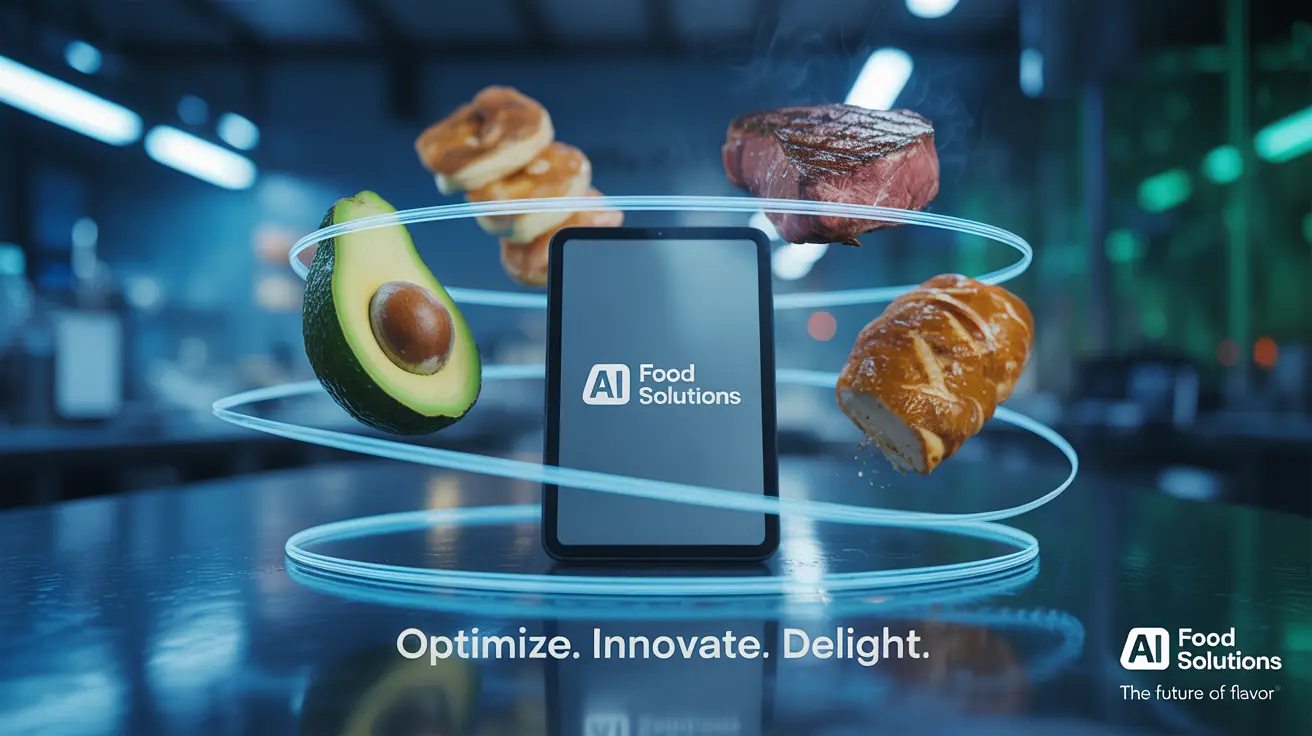Home / Blog / The Role of AI in Revolutionizing the Food & Beverage Industry
Explore how artificial intelligence is reshaping the food and beverage industry from supply chain optimization and personalized menus to smart kitchens and data-driven marketing.
22 Sep, 2025

The food and beverage (F&B) industry has always been at the forefront of innovation. From the introduction of refrigeration to the rise of online delivery platforms, every technological leap has transformed how we produce, distribute, and consume food. Today, artificial intelligence (AI) is driving the next big transformation.
AI isn’t just automating tasks it’s reshaping the entire ecosystem of the F&B industry. From smart kitchens that monitor cooking precision to predictive analytics that minimize food waste, AI is helping restaurants, manufacturers, and retailers serve customers better while improving efficiency.
This blog explores how AI is revolutionizing the food and beverage industry, highlighting its role in operations, customer experience, supply chains, and future innovation.
Automated Quality Control
AI-powered computer vision systems can inspect food
products for defects, ensuring consistent quality.
For example, Nestlé uses AI
to identify irregularities in packaging and food items.
Food Safety and Compliance
AI monitors hygiene standards, detects contamination risks, and ensures compliance with safety regulations. This reduces costly recalls and enhances consumer trust.
Predictive Maintenance in Factories
AI sensors in food processing machines can detect wear and tear early, preventing breakdowns and minimizing downtime.
Demand Forecasting
One of the biggest challenges in the F&B industry is demand fluctuation. AI analyzes historical sales data, seasonal trends, and external factors like weather to predict demand more accurately.
Inventory Optimization
AI ensures optimal stock levels by predicting which ingredients are needed and when. This reduces waste and prevents shortages.
Transparent Food Traceability
Blockchain-powered AI solutions can track food origins, ensuring authenticity and transparency critical in an age where consumers demand ethical sourcing.
Personalized Menus
Restaurants are using AI to personalize recommendations based on customer preferences. Just like Netflix suggests movies, AI-powered menus suggest dishes.
Dynamic Pricing
AI can adjust menu prices in real time based on demand, inventory, and even local events.
AI-Powered Chatbots & Virtual Assistants
From booking tables to answering FAQs, AI-powered assistants reduce staff workload and provide 24/7 customer support.
Voice Ordering
Integrating AI with voice assistants like Alexa and GoogleAssistant allows customers to place food orders hands-free.
Optimized Delivery Routes
AI helps delivery apps reduce time and fuel costs by suggesting the fastest routes. Companies like Uber Eats and DoorDash use this technology extensively.
Smart Packaging
AI-driven IoT sensors in packaging monitor temperature and freshness during delivery, ensuring better customer satisfaction.
Customer Feedback Analysis
AI analyzes reviews, social media mentions, and ratings to provide restaurants with actionable insights.
Food waste costs the industry billions each year. AI plays a critical role in:
Example: Winnow Solutions, an AI startup, helps commercial kitchens cut food waste by analyzing what gets thrown away.
Smart Brewing & Mixing
AI monitors brewing conditions, ensuring consistent quality in beer and beverages.
Flavor Innovation
Coca-Cola uses AI to create new flavors by analyzing consumer taste data and market trends.
Beverage Personalization
Smart vending machines powered by AI allow customers to mix and customize drinks.
Predictive Analytics for Promotions
AI identifies which customers are most likely to respond to certain offers, enabling targeted promotions.
Social Media Listening
AI tools analyze conversations to identify emerging food trends, giving restaurants and brands a competitive edge.
Virtual Try-Before-You-Eat Experiences
AR combined with AI allows customers to visualize meals before ordering, enhancing decision-making.
The future of dining will be more efficient, personalized, and sustainable thanks to AI.
The food and beverage industry is entering a new era powered by artificial intelligence. From production lines to dining tables, AI is making processes smarter, reducing waste, and elevating customer experiences.
For businesses, adopting AI is no longer optional it’s
essential for staying competitive in a fast-changing industry.
At 10turtle, we help food and beverage businesses integrate AI-driven solutions
that improve efficiency, reduce waste, and enhance customer experiences.
Contact10turtle today to explore how AI can revolutionize your F&B business.
Q1: How is AI used in the food industry?
AI is used in quality control, supply chain optimization, menu personalization,
smart kitchens, and marketing analytics.
Q2: Can AI help reduce food waste?
Yes, AI predicts demand, optimizes inventory, and provides insights on portion
sizes and waste trends.
Q3: How are restaurants using AI for customer
experience?
Restaurants use AI chatbots, personalized menus, and voice ordering to enhance
convenience.
Q4: What role does AI play in the beverage
industry?
AI ensures consistent brewing, creates new flavors, and enables personalized
beverage mixing.
Q5: Is AI adoption expensive for small
restaurants?
Not necessarily. Many cost-effective AI tools and SaaS solutions are available,
making AI accessible for small businesses.
Q6: What’s the future of AI in food and
beverage?
Expect more automation, personalized nutrition, and AI-driven sustainability
initiatives.